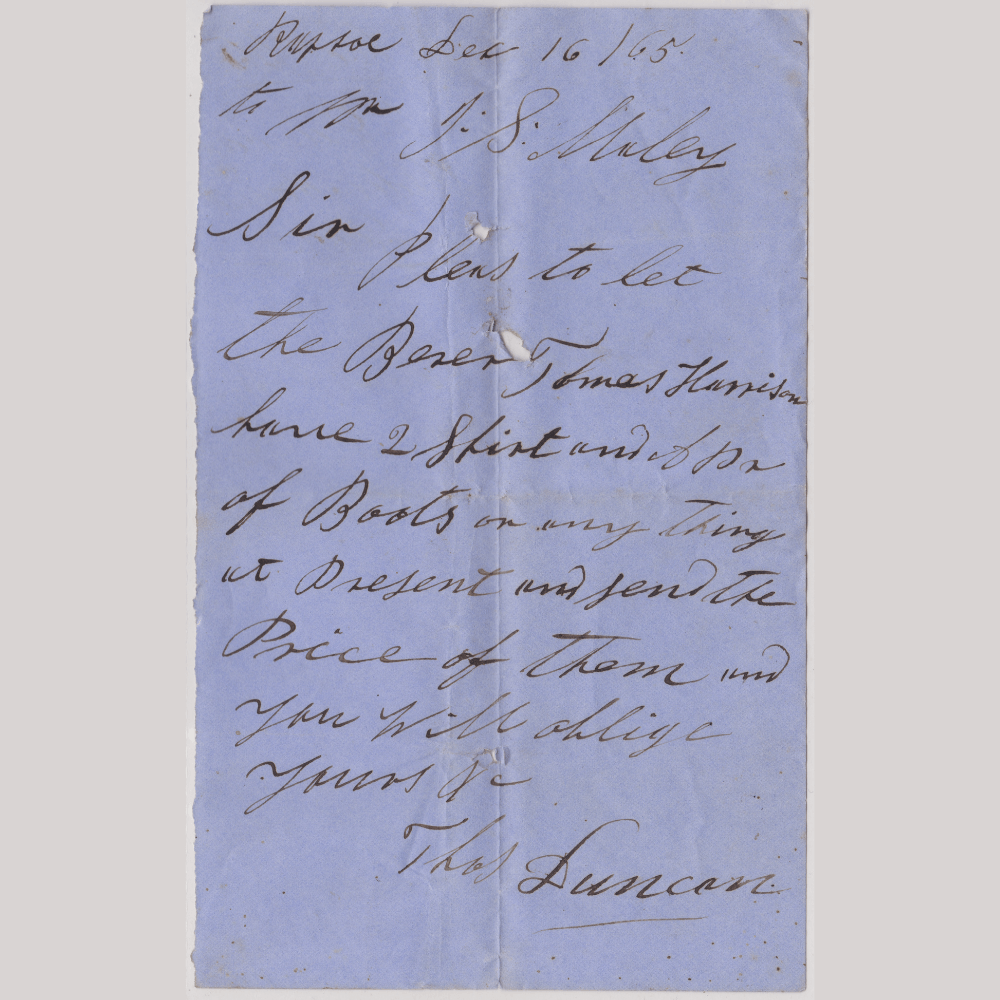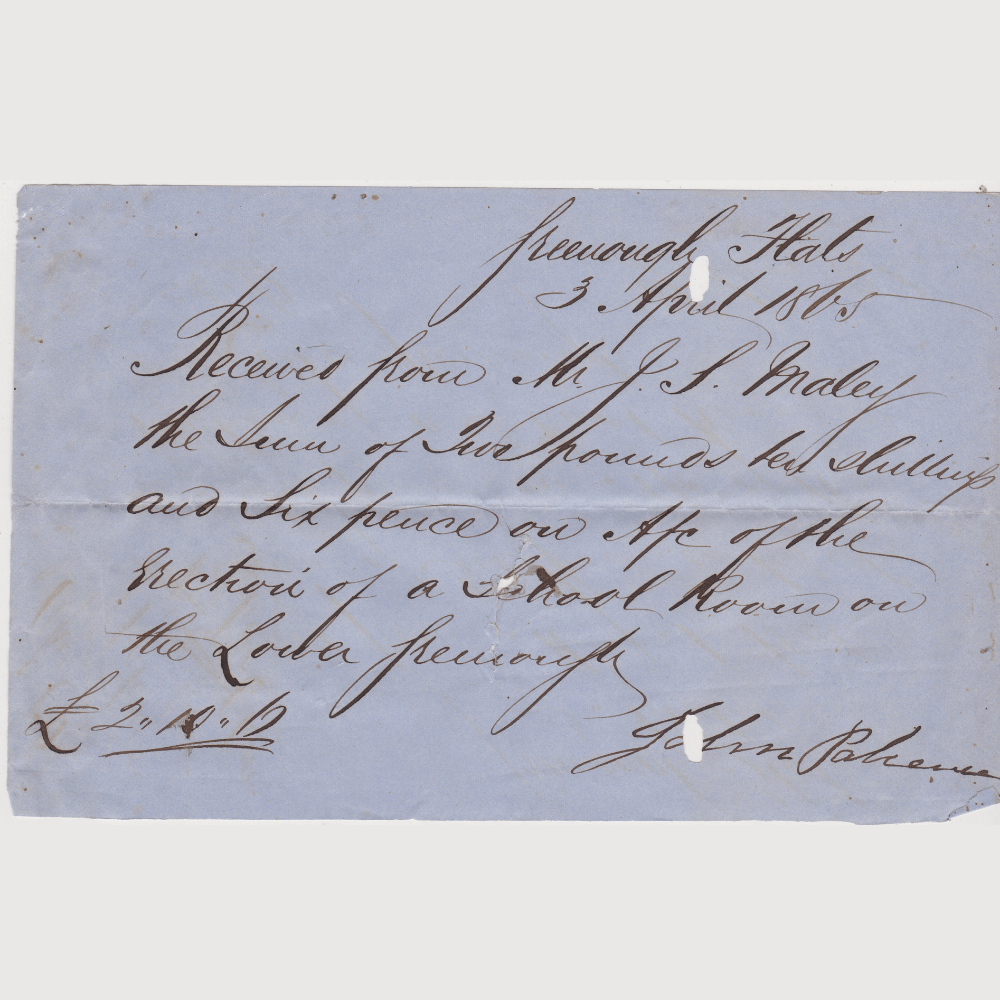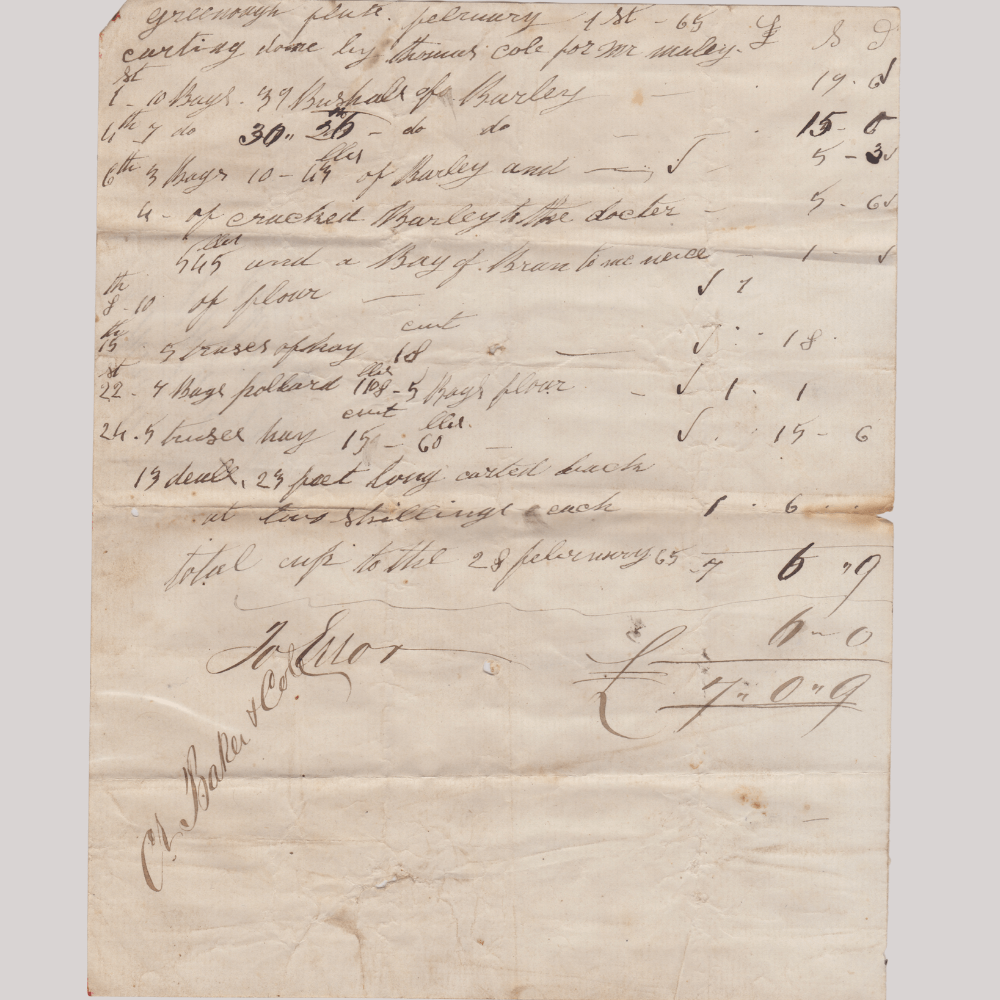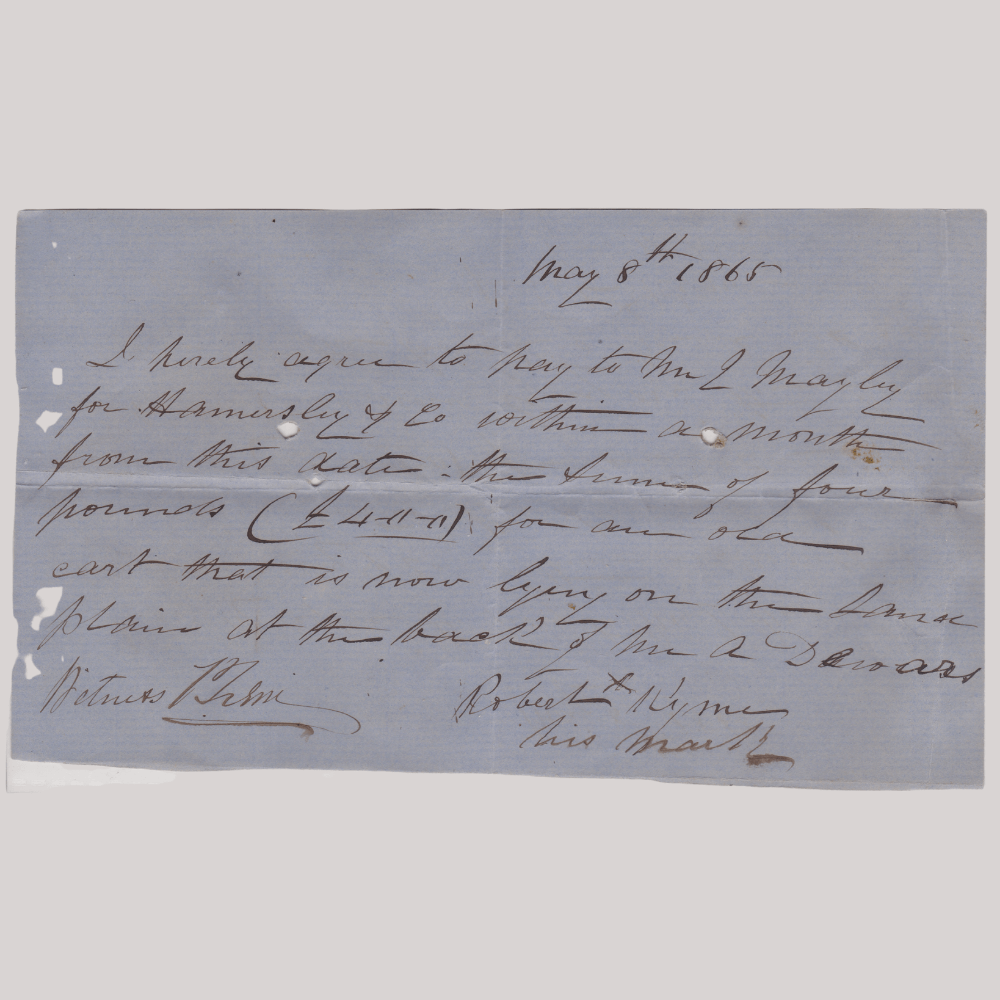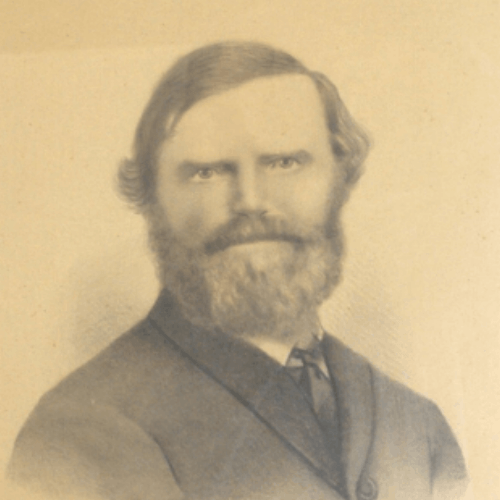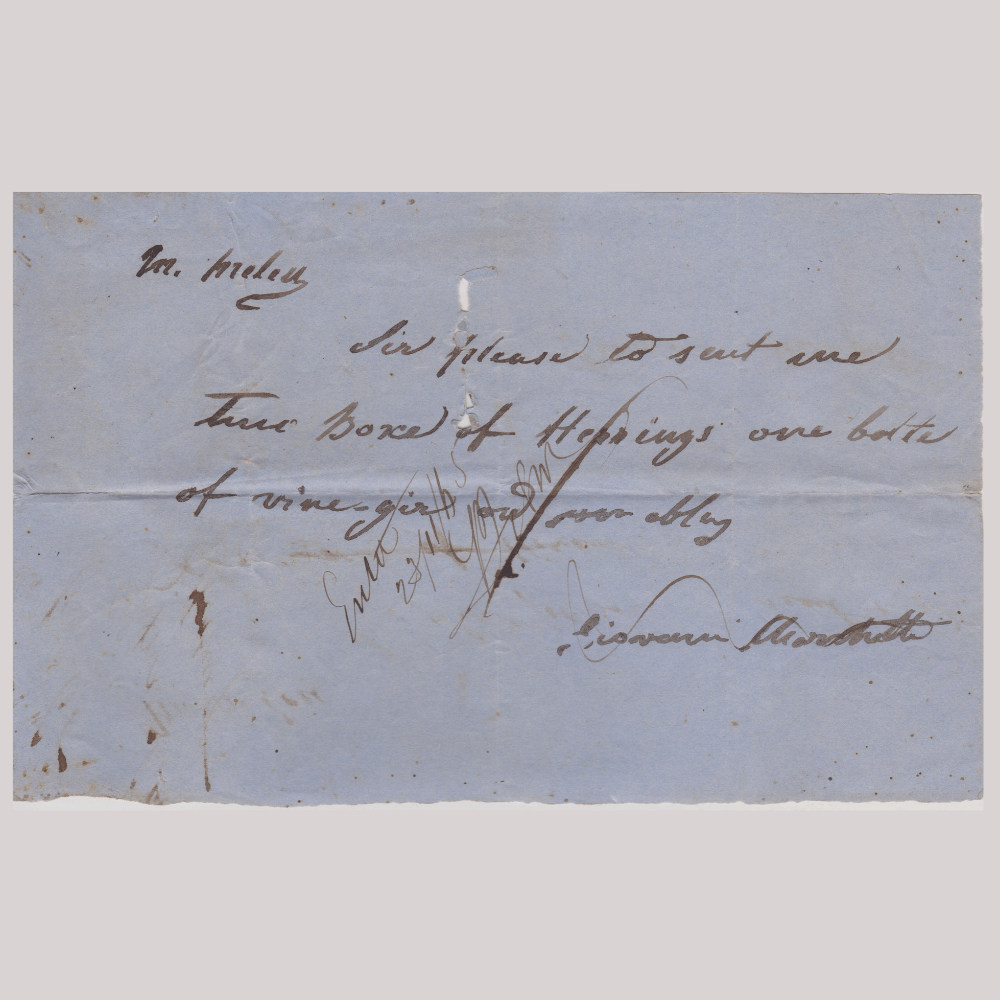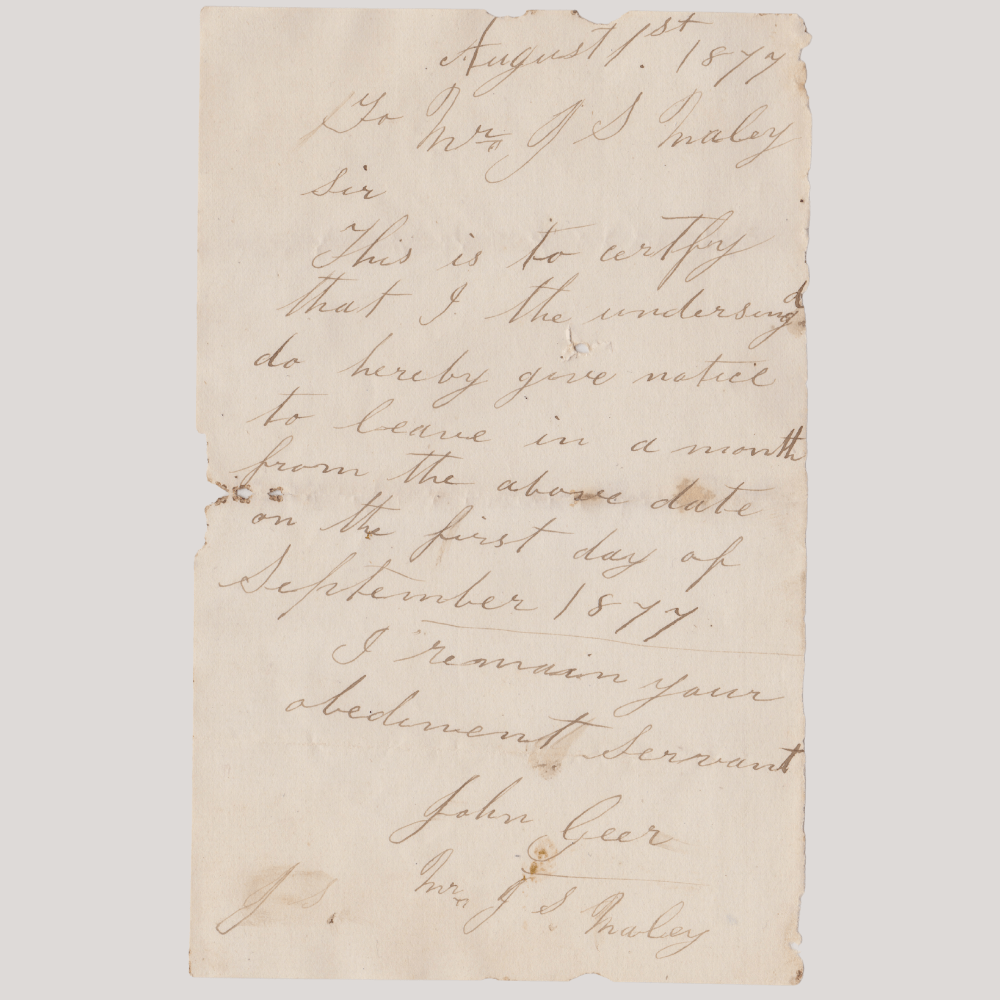Discover something different every time...
8 Convict Notes
This exhibition examined the lives of eight convicts, transported to WA from Britain between 1850 and 1868, who all found their way to Greenough.
8 Convict Notes was a fascinating insight into our local history told, in part, through the contemporary notes and letters left behind by those eight former convicts. Those notes, from the museum’s archive, give us a glimpse into what life was like for these men.
Thomas Harrison 7443
Charged with breaking and entering in 1862 and sentenced to 10 years, Thomas Harrison arrived in Fremantle just a few days before his twentieth birthday. It might not seem like a great start to adulthood but Harrison quickly became one of Greenough’s most upstanding and civic-minded citizens.
In Manchester on Christmas Eve 1843, Margaret, wife of Stephen Tanner gave birth to a boy. We don’t know much about how this boy grew up. By 1859 he had married Elizabeth Harrison and they had a daughter, Elizabeth.
He then began using the alias, Thomas Harrison. It was under this name that he appeared before a judge at Manchester on 7 March 1862, charged, along with two other men, of house breaking and entering a dwelling house and stealing. Harrison received a sentence of 10 years.
Harrison was transported on the Lord Dalhousie, arriving in Fremantle four days after his twentieth birthday. He is described as being, 5ft 3½ins tall, light brown hair, black eyes, long visage, sallow complexion, slim build, tattoo of a man & mermaid on left arm, flags & crown on right arm.
On 1 April 1864 he was appointed acting ‘convict constable’ (the most trusted convict put in charge of a convict group – earning the privilege of a small gratuity). Promotion was swift to convict Constable 3rd class in June 1864; to 2nd class in September 1864; and Convict Constable 1st Class in March 1865. Harrison was granted his Ticket of Leave on 4 August 1865 at Champion Bay.
Harrison received his Conditional Pardon on 18 December 1869 and his Conditional Freedom on 3 April 1872.
By then, Harrison was living with Ann, widow of John Patience (another expiree) at “Rock of Ages” Farm (just across the road from this museum). Ann had been left with 8 children ranging in age from 13 to an infant. The couple went on to have another seven children, three being born before they married in St Peter’s Catholic Church, Greenough, on 19 April 1877.
In 1880 Harrison served as Chairman of the Greenough Mechanics Institute and secretary of the Greenough Farmers’ Club. He also served on the Greenough Roads Board from1883-1898 and 1906, and was Chairman for 1887, 1889, 1892 and 1894-98.
Ann died in December 1897. Harrison married Martha Bennett in November 1902 at Geraldton.
Harrison is buried in an unmarked grave alongside his first wife and members of the Patience family at the Greenough Pioneer Cemetery.
We have another two notes from Thomas Harrison in the collection.
John Patience 2
Greenough Flats
3 April 1865
Received from Mr J.S. Maley the sum of two pounds ten shillings and sixpence on A/c of the erection of a School Room on the Lower Greenough.
£2.10.6 John Patience
When he was transported to Fremantle in 1848 after being sentenced to 14 years for a fairly substantial burglary, John Patience left a wife and two children behind in England. That didn’t stop him telling colony authorities he was a widower and marrying someone else.
Born at Peasmarsh, Sussex in 1819, Patience was convicted at Dorset on 11 March 1848 along with another man, of breaking into the house of John Stone and stealing six five pound notes, gold, silver and copper coins to the value of £30, a silver watch, a powder flask and a shot charger. He was sentenced to 14 years. Patience came on the Scindian, (the first boat to bring convicts to the colony) arriving at Fremantle on 1 June 1850. He left a wife and two children in England.
Patience received his Ticket of Leave on 5 May 1851. The following year he was part of A.C. Gregory’s discovery party to the Gascoyne River. He then worked at the Geraldine Mine, where, by convincing authorities that he was a widower, he married Ellen. The marriage only lasted a year; following Ellen’s death during childbirth. Mother and child are buried at Port Gregory. Three years later Patience married sixteen year old Ann Criddle at Port Gregory. The couple then moved to Greenough, taking up a property now known as “Rock of Ages” (across the road from the museum). Here Patience also found work as a boot-maker.
The couple was to have the following children:- Joseph John (b.1859); Male (b.1860); Isaac (b.1861); Anne (b.1863): Elizabeth (b.1866); Susannah (b.1868) and Hannah (b.1870).
Fifty-one year old Patience died on 24 September 1870 at Greenough. His burial place is not known.
There are another nine notes from John Patience in the collection.
Thomas Cole 4359
Sentenced to 20 years for a house burglary in 1855 and eventually transported to Australia, Thomas Cole was a free man and living in Greenough by 1865. He married Isabella Curran in 1882 and the pair lived in a small cottage on the banks of the Greenough River, about three kilometres south of this museum. Tragically, both Thomas and Isabella drowned in the infamous flood of February 1888 and are buried in unmarked graves at the Greenough Cemetery.
Twenty-nine year old Thomas Cole was convicted at Winchester on 10 July 1855 along with three other men of breaking into a dwelling house and stealing plate, jewelry and money. Sentenced to 20 years imprisonment, he arrived at Fremantle aboard the Clara on 3 July 1857. He received his Ticket of Leave at Mt Eliza on 11 February 1860, and his Conditional Pardon at Toodyay on 23 May 1863. By 1865 he was working at Greenough.
Robert Kyme 5186
May 8th 1865
I hereby agree to pay to Mr J Mayley for Hamersley & Co within a month from this date the sum of four pounds (£4.0.0) for an old cart that is now lying on the sand plain at the back of Mr A. Dewar’s.
Witness T Shaw Robert X Kyme his mark
Kyme’s early crimes were paltry – stealing fowl – but he moved on to housebreaking (then attempted prison breaking) and eventually highway robbery. Sentenced to six years, he arrived in Fremantle in 1858 and worked in various mines around Northampton and Greenough.
Life was tough in Yorkshire for men without education or income. We know little about Kyme’s early life. Born in 1819, he first went to prison for three months for stealing fowls. He then moved to house-breaking, for which he spent seven years inside. It is easier breaking in than breaking out as Kyme discovered when he failed in his attempt to escape. Then at York on 19 March 1857, he and four mates were found guilty of committing highway robbery, and sentenced for six years.
Kyme was transported from Portsmouth Prison on the Edwin Fox, arriving at Fremantle on 21 November 1858. He is noted as having lost several upper front teeth.
Kyme’s Ticket of Leave was issued on 2 March 1861 and he received his Conditional Pardon at Champion Bay on 22 December 1862. Kyme worked at the Mines near Northampton and at Greenough. He was granted his Conditional Freedom on 2 May 1865.
Kyme died at Greenough on 14 March 1867. Neither the cause of his death nor his place of burial is recorded.
There are another seven notes from Kyme in the Archives.
John Knapp 733
A brewer before being convicted of larceny in 1849, John Knapp arrived in the colony in 1851 and soon took up farming in the Greenough area. He died after being kicked by a horse, but his farm would stay in the family for almost another century.
John, the oldest son of John & Catherine Knapp was born in Branston, Leicestershire on 12 August 1827. He worked as a brewer before being convicted in Leicester on 2 February 1849 of larceny as a servant. As he had a previous conviction, he received a sentence of 7 years imprisonment.
On 18 October 1851, Knapp arrived in this colony on the Minden. He received his Ticket of Leave immediately and his Conditional Pardon in March 1854.
Knapp moved to Greenough where he married Ann Dewar on 16 October 1860. Ann and John had three children, of which only one survived before Ann died of typhoid on 4 January 1866. John then married Ellen Slattery on 4 November 1866. Ellen was to be the mother of four children, two of whom survived.
John was a tenant farmer at South Greenough and in 1875 he sponsored his brother William, wife Mary and their four children to migrate to the colony. William lived on the same farm as his brother and worked as a carter.
John died on 5 May 1888, two weeks after being kicked by a horse. He, his two wives and infant children are all buried in unmarked graves at Greenough.
Giovanni Marchetti 4042
Mr Maley
Sir please to send me two boxes of Herrings one bottle of vinegar and you oblige
Giovanni Marchetti
A drunken brawl involving two prostitutes in a Liverpool pub that resulted in the stabbing and death of a Scottish sailor saw Giovanni Marchetti convicted of manslaughter. The Venetian was transported in 1856 and eventually started a family and took up farming on the Back Flats of Greenough. He died in 1897 (but not before one more drunken brawl, that saw him imprisoned in Geraldton for 21 days).
Not all convicts were born in the British Isles. On 3 January 1855, 21 year old Venetian sailor Giovanni Marchetti and his French mate went for a drink at the Blue Anchor Inn, Liverpool. A drunken brawl involving two prostitutes started and in the melee Giovanni stabbed William Steel, a Scottish sailor, killing him instantly.
Marchetti was found guilty of manslaughter, and in sentencing, Justice Wightman stated that,
“…he should pass the most severe sentence that the law allowed, viz., that of transportation for life, by which he would have to endure a life of slavery, unless his good conduct should occasion his punishment to be in any degree mitigated.”
Marchetti was transported on the Runnymede, arriving in Fremantle on 7 September 1856. He received a special recommendation from the surgeon for his excellent behavior onboard.
Marchetti’s Ticket of Leave was issued at Toodyay on 18 December 1860.
Marchetti married Rosa Mary Ainsworth at Toodyay in 1861. By 1863, the couple had moved to Greenough, where their first child, Olympia was born. Here, the couple leased a farm on Kennedy Road, Back Flats.
Marchetti received his Conditional Pardon on 25 September 1865.
The couple were to have further children, Giovanni (b.1865), Miriam Eliza (b.1867), Rosa Guiseppa (b./d. 1870), Orlondius (b.1884), Amedio Ferdinando (b.1887) and Camilla Eliza (b.1890).
Rose Marchetti died at the Back Flats on 28 June 1890. She was only 44.
Marchetti was imprisoned for 14 days in October 1891 for being drunk in Geraldton and resisting police. In July 1893 he was imprisoned for 21 days for being drunk in Geraldton.
Giovanni Marchetti died at the Mt Eliza Depot, Perth on 19 June 1897.
There are another 21 notes from Marchetti in the Archives.
John Gear 3119
Stealing a fustian coat would normally not lead to transportation but John Gear, an unmarried British seaman, already had a criminal record. So, when he was found guilty in 1852 he was sentenced to 15 years.
Gear came out on the Ramillies, arriving at Fremantle on 7 August 1854. Maybe he decided transportation was an opportunity for a fresh start, as his behavior on board is described as exemplary. He is also said to be ‘an extremely hard working, industrious man.’
Gear received his Ticket of Leave on 8 February 1856 and worked as a shepherd for Thomas Brown at Glengarry. He received his Conditional Pardon at Champion Bay on 14 November 1860.
There are six notes from John Gear in the collection. From them we know Gear shepherded J.S. Maley’s sheep over on the Back Flats in June 1876, that he liked currants and that in January 1878 he owed Jane Doran (widow of Corporal Doran, Pensioner Guard at Greenough) six shillings.
We know nothing more of Gear’s life other than that he was admitted to the Mt Eliza Invalid Depot in Perth on 24 October 1884.
Charles Sims 3310
Well Station Jany 10/76
Mr J.S. Maley
Sir Please to pay Dr Scott the sum of P3..0..0 three pounds
Charles Sims
A farm labourer in Britain, Charles Sims (and five others) were convicted of “firing a barn and shed” in 1853. Considered one of the ringleaders, he was sentenced to 15 yearsand was transported. By 1866 he’d started a family and found work in Greenough (on local farms, if you can believe anyone trusted him with their sheds).
Born in Berkshire in 1832, Sims commenced his working life as a farm labourer. Disgruntled with working conditions he and five other men set fire to a barn and shed, the property of Mr. Williams. The men were brought before the Reading Assizes on 28 February 1853 and as Sims was found to be the ring-leader he was sentenced to be transported for 15 years. It was noted that he was illiterate.
Sims arrived in Fremantle aboard the Stag on 23 May 1855. He is described as being 5ft 7¼ins, light hair, blue eyes, long visage, fair complexion and of slight build. A joint of the first finger of his left hand was broken and he had a mole on his left cheek.
Sims received his Ticket of Leave on 23 February 1857 and his Conditional Pardon on 21 April 1860.
Meanwhile Charles had married Elizabeth Duggan in Perth on 28 April 1858. The couple were to have four children, and all were born at Greenough: Thomas (b.1859); John (b.1860); Anne (b.1863) and Charles (b.1864).
By 1866 Sims had found work in this district as a teamster, and from the early 1870s he was a tenant farmer for Hamersley & Co at Well Station (to the east of Walkaway).
Sims died at Greenough on 9 March 1896, and his passing warranted a brief mention in the Geraldton Express. Sims is buried in an unmarked grave at a Roman Catholic cemetery at Greenough.
There are another 15 notes from Sims in the Archives.

